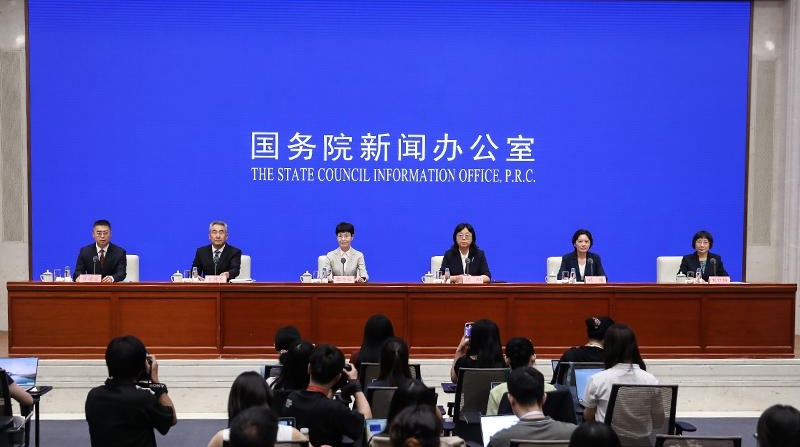Bloomberg News:
I want to ask how China would assess the success of the measures being announced to increase the birth rate? And also, would it be possible in the future if the government might consider increasing the amount of subsidies and other assistance given to families if needed? Thank you.
Guo Yanhong:
Thank you for your questions. I would like to invite Mr. Wang to answer these questions.
Wang Haidong:
Thank you for your questions. As China's economy and society have developed, the country has transitioned from population growth to demographic decline, characterized by reduced birth rates, an aging population and regional demographic disparities. To adapt to these new demographic realities, China is accelerating improvements to its childbirth support policy system and continuously reducing the burdens of childbearing, child-rearing, and education on families. The country is promoting a childbirth-friendly society and striving to maintain moderate fertility rates and population levels. This approach supports Chinese modernization through high-quality population development.
Population change is a gradual process influenced by many factors. The effectiveness of childbirth support measures, including child care subsidies, requires long-term observation. We will continuously monitor and comprehensively evaluate these programs throughout their implementation. International experience demonstrates that effective childbirth support requires coordinated policies across multiple dimensions to establish comprehensive support systems. Moving forward, we will work with relevant departments to advance research on key population development challenges, enhance population monitoring systems, and strengthen policy effectiveness assessments. At the same time, we will enhance our policy reserves while continuously improving the childbirth support policy system to promote high-quality population development. Thank you.


 Share:
Share: 




 京公网安备 11010802027341号
京公网安备 11010802027341号